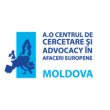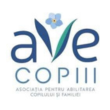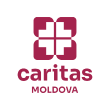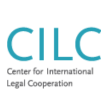Organizații vizate:
Granturi și Finanțări
- Detalii
- Categorie: Granturi
Calls for Proposals|Technical and Financial Support for Social Media Monitoring of the 2025 Parliamentary Elections
Informațiile prezentate în articolul de mai jos pot să nu mai fie actuale sau să nu mai reflecte activitățile și programele curente. Anunțul este păstrat în arhivă pentru a asigura transparența și accesul public la informațiile despre inițiativele și proiectele implementate anterior.

-
Objectives of the call for proposals
The overall objective of this call for proposals is to provide both technical and financial support to civil society and media organisations to conduct research using social media monitoring (SMM) techniques ahead of the 2025 parliamentary elections in the Republic of Moldova.
The specific objective is to strengthen the capacity of the selected organisations in SMM, enabling them to effectively analyse social media content during the 2025 parliamentary elections in Moldova, using qualitative analysis methods developed under Democracy Reporting International (DRI)’s Digital Democracy Monitor Toolkit.
-
Scope of the support programme
Technical support
Selected organisations will develop essential technical skills in advanced qualitative social media monitoring techniques through a comprehensive training programme offered by Democracy Reporting International. This programme consists of four online modules and will focus on critical areas of political discourse, including disinformation, misinformation, online threats, and hate speech. Each module, four hours each, will address crucial topics, including the analysis of the social media landscape, effective data collection and qualitative data analysis methods, and strategies to collect, sample, and analyse qualitative data for research purposes.
Additionally, DRI experts will be available for ongoing assistance throughout the research process, offering insights on data interpretation and helping with the development of final research reports, including effective data visualisation guidance. DRI will provide datasets from major platforms like Facebook and Instagram, along with guidance on data analysis to help learners accurately interpret their findings.
Financial support
Selected organisations will receive financial support in the form of grants managed by the European Partnership for Democracy. This funding will enable them to cover the costs of their training participation, implement their research projects using the social media monitoring technique during the electoral period, publish their findings and conduct dissemination, awareness-raising or advocacy activities.
-
Grants modalities
The funding amount for each proposal is fixed at EUR 15,000.
The projects should last between 6 and 12 months, and be implemented starting January 2025.
The grant recipients will sign a grant contract agreement with EPD. Several proposals are expected to be funded under this call.
As selected organisations will be exempted from VAT from the costs incurred within this grant, the budget proposal should contain the planned costs excluding VAT.
-
Eligible activities and priorities of the call
The following types of activities are eligible for funding. The list is neither exhaustive nor cumulative. Additional types of activities may be considered, provided they align with the objectives of this call for proposals. These examples are offered as suggestions to inspire potential applicants and guide their project design.
- Ensure participation of staff, experts, or journalists in online training for social media monitoring techniques to enhance their capacity to identify trends and threats during elections.
- Conduct research on hate speech, focusing on gender-based violence, discrimination, or political bias on social media.
- Investigate disinformation campaigns, particularly those targeting vulnerable groups such as minorities, youth, or first-time voters.
- Explore the role of social media in amplifying political polarisation, including the spread of extremist ideologies or false narratives about candidates.
- Study misleading information surrounding voting processes, such as fake polling dates, misrepresentation of voting rules, or false claims about candidates' policies.
- Develop advocacy papers for policymakers with recommendations on tackling hate speech and disinformation, addressing areas like electoral integrity and online regulation.
- Publish materials aimed at raising public awareness about the spread of disinformation, with a focus on fact-checking tools and identifying trusted sources of information (articles, factsheets, video materials, etc).
- Organise workshops on media literacy, covering topics like identifying deepfakes, understanding algorithmic bias, and promoting critical thinking among the public.
- Host panel discussions featuring researchers, policymakers, and journalists to present findings on the impact of disinformation and promote strategies for safeguarding electoral transparency.
The priorities for this call focus on enhancing civil society's capacity to conduct research projects using social media monitoring techniques ahead of the 2025 parliamentary elections in the Republic of Moldova. The following priorities will enhance the relevance of proposals:
- Applicants are encouraged to propose their preferred scope of research and approach to investigation. Priority will be given to innovative, under-explored, and critical topics related to the elections.
- Applicants should specify the format of their research output—whether a study, journalistic investigation, series of articles, comprehensive report, or another form—and outline their intended method of dissemination. Special emphasis will be placed on initiatives that promote transparency, accountability, and informed public discourse, particularly in countering disinformation and hate speech.
- Proposals should leverage innovative social media monitoring techniques offered by DRI to analyse political discourse and provide actionable insights and effective outreach.
- Proposals that include public awareness campaigns aimed at educating citizens about the dangers of disinformation and the importance of media literacy will be highly valued. Projects that link research findings to policy advocacy and foster dialogue with policymakers will also be prioritised, as they contribute to creating tangible, long-term impacts in the public sphere.
- Complementarity with ongoing initiatives is encouraged to ensure a coordinated approach.
The following types of activities are ineligible for funding: actions that focus primarily on individual sponsorships for participation in workshops, seminars, conferences, or congresses will not be supported. Additionally, activities concerned mainly with individual scholarships for studies or training courses are excluded. Any actions that support political parties or candidates during elections are also ineligible. Furthermore, retroactive financing for projects that are already in progress or have been completed will not be considered. Projects that provide exclusive benefits to individuals or restricted groups of individuals will not qualify for funding. Actions within the formal education sector will generally be ineligible, except in special circumstances. Environmentally harmful projects will not receive funding, and the purchase of equipment is only permissible if it is directly linked to the implementation of the project.
-
Application and selection process
The following provides an overview of the application and selection process from the publication of the guidelines to the start of implementation.
5.1 Indicative timeline
|
Opening of the call |
Wednesday 5 November 2024 |
|
Online information session |
Thursday 14 November 2024; 14:00 Chișinău time (link to register here) |
|
Deadline to submit proposals |
Monday 2 December 2024; 23:59 Chișinău time |
|
Evaluations of the proposals |
4 - 10 December 2024 |
|
Negotiation, finalisation and award |
11 - 18 December 2024 |
|
Indicative implementation period of grants |
1 January 2025 - 31 December 2025 (from 6 to 12 months within this period) |
|
DRI’s capacity development training on SMM in the electoral period |
End of January - February 2025 |
For any further questions, please feel free to write an email to grants@epd.eu mentioning the title of this call before 25 November 2024. Answers to questions will be published on EPD’s website, under https://epd.eu/opportunities/
5.2 Full application submission
The application period is open immediately and will close on Monday 2 December 2024 (23:59, GMT+3, Chișinău time). The full application package is composed of:
- The full application form filled and signed (Annex 1)
- The budget application form filled (Annex 2);
- The identification / registration certificate of the applicant.
Applications should be sent to grants@epd.eu. Applications must be submitted in English, Romanian or Russian languages.
5.3. Evaluation and award procedure
5.3.1 Administrative compliance
All applications will undergo an administrative check that establishes whether the information required by the online application form has been provided. Applications will be assessed through the administrative compliance criteria described below:
- The application package is received complete, in line with section 5.2 above.
- The organisation must be an NGO registered in Moldova and provide a certificate of registration.
- The organisation must be able to sign a grant agreement with EPD.
- The organisation is not already a beneficiary of a grant within the INSPIRED Moldova project.
- The organisation must be not in any of the exclusion criteria outlined in the application form, section 7, such as conflict of interest, adverse audit opinion by the organisation’s own auditors or its donors’ auditors, participation in a criminal organisation, corruption, fraud, terrorist activities, money laundering or terrorist financing, child labour and other forms of modern slavery or human trafficking, any illegal activity, being bankrupt or subject to insolvency or winding-up proceedings or similar arrangements, professional misconduct or unfair procurement processes, and an outstanding level of debt that could put grant funds at risk.
5.3.2 Technical evaluation
The Evaluation Committee will then assess the administratively compliant applications against the criteria listed below:
|
Evaluation criteria |
Max points |
|
Relevance |
20 |
|
Alignment with the call’s objectives |
20 |
|
Citizen awareness of civil society participation |
15 |
|
Sustainability |
10 |
|
Gender mainstreaming and inclusion |
5 |
|
Multi-stakeholder dialogue and partnership development |
5 |
|
Originality and innovation |
5 |
|
Cost-effectiveness |
5 |
|
Stakeholders involvement |
5 |
|
Expected participants/Target groups reach |
5 |
|
Awareness-raising activities |
5 |
5.3.3 Final evaluation & award decision
Based on this evaluation, applicants will receive an official response with the outcome of their application.
If selected for funding, a number of additional documents may have to be completed by the applicant as part of the due diligence process. Once all comments have been addressed and additional information and documents have been provided, a grant agreement will be signed between the applicant and EPD.
-
Background information
INSPIRED Moldova is an EU-funded project running from 2024 to 2027 which aims to contribute to creating an enabling environment for civil society in Moldova by empowering civil society organisations (CSOs) to actively engage in policy discussions at all levels. Building on the momentum generated by the EU accession process, the project facilitates policy dialogue processes on the enabling environment for civil society and relevant plans and programmes stemming from the accession negotiations. Recognising the importance of prioritising democracy building in the EU's new methodology on the fundamentals first accession criteria, the initiative will strengthen the capacities of CSOs to act as catalysts for democracy both at national and local level and in the digital sphere.
The project will support collaborative efforts to cultivate an inclusive and participatory environment conducive to improving public participation, including through the promotion of underrepresented groups and women in Moldova. It does so by empowering Moldovan civil society to actively influence national policies and boost the country's EU integration by involving CSOs in policy-making processes in the national, local and digital spheres. Through technical and financial support to CSOs in Moldova, the project provides the essential tools and resources needed to amplify their voice and achieve sustainable impact. It also encourages dialogue and collaboration with public authorities, ensuring that civil society becomes a key actor in promoting democracy in Moldova.
The call for proposal related to output 3, which seeks to curate, disseminate, and apply digital toolkits for democracy, equipping CSOs with essential digital resources and expertise to effectively engage citizens and participate in policy dialogue.
The project is implemented by a Consortium of six organisations, among which the European Partnership for Democracy (EPD), Center for Policies and Reforms (CPR Moldova), the National Assistance Centre for NGOs in Moldova (CONTACT), People in Need (PIN), the European Association for Local Democracy (ALDA), and Democracy Reporting International (DRI).
The European Partnership for Democracy (EPD) is a non-profit organisation supporting democracy worldwide. It is a unique partnership comprising European democracy support organisations present in Africa, Asia, Europe, the Middle East and Latin America. EPD works inside and outside Europe as democracy is a universal aspiration and the contemporary challenges and opportunities for democracy are global in scope. More information about EPD is available at www.epd.eu.
Democracy Reporting International (DRI) is a Berlin-based organisation that supports local ways of promoting democracy with impartial analysis and good practices, bringing international standards. It is among the world’s leading NGOs working on issues of disinformation and digital democracy. More information about DRI is available at https://democracy-reporting.org/.
-
Notice
This call for proposals is made possible by the financial support of the European Union. Its content represents the sole responsibility of the INSPIRED Moldova project, financed by the European Union. The content of the call for proposals belongs to the European Partnership for Democracy and does not necessarily reflect the vision of the European Union.









